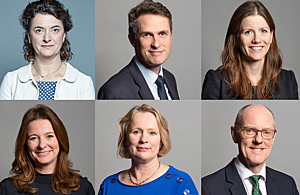£17 million to make journeys in West Sussex quicker and greener
- Department for Transport investing £17 million in the A2300 improvement at Burgess Hill
- the £22 million road scheme will cut traffic jams and support thousands of new homes to be built in the area
- latest investment by government to improve journeys in the region
Communities in West Sussex are set to benefit from quicker and safer journeys thanks to a new road upgrade given the green light today (18 February 2020).
Transport Minister Baroness Vere has announced a £17 million investment in the A2300 improvement scheme, which will reduce congestion, improve reliability for drivers and support growth in the region.
The A2300 improvement, worth £22 million in total, will cut congestion and improve safety by converting a 2.5km section of the existing road to a dual carriageway between the A23 and the proposed Northern Arc roundabout.
The scheme links Burgess Hill to the A23/M23 and is an important route for commuters, who often face congestion and delays. The upgrades will also see the addition of new walking and cycling paths and will allow over 3,500 new houses to be built along the route, by providing a key link between the planned development at Burgess Hill and the London to Brighton corridor.
Transport Minister Baroness Vere said:
This government is committed to boosting transport links for communities up and down the country.
This transformative road scheme will not only save drivers time, but will also mean more homes, more shared footpaths, and more cycleways – boosting journeys for all.
At its peak, it is estimated over 20,000 vehicles use the road daily. Without the upgrade, traffic flows are expected to grow by 40% over the next 2 decades.
West Sussex County Council’s Cabinet Member for Highways and Infrastructure Roger Elkins said:
This is the excellent news we have been waiting for and puts the scheme on course for starting on site this spring.
The scheme will widen around 2.5km of single-lane road to a dual carriageway, helping to unlock significant development opportunities, reduce congestion, and bring many other benefits to the area, including providing new walking and cycling facilities.
Work on the scheme is expected to start in the spring, with the road expected to be open in winter 2021.
The new road is just one of a number of projects in West Sussex including the Crawley Growth Programme and the major station improvements at Gatwick.
This is the latest in the government’s drive to improve links and level up infrastructure for communities across the UK and follows the announcement of a £5 billion funding package to overhaul bus and cycle links around the country.
